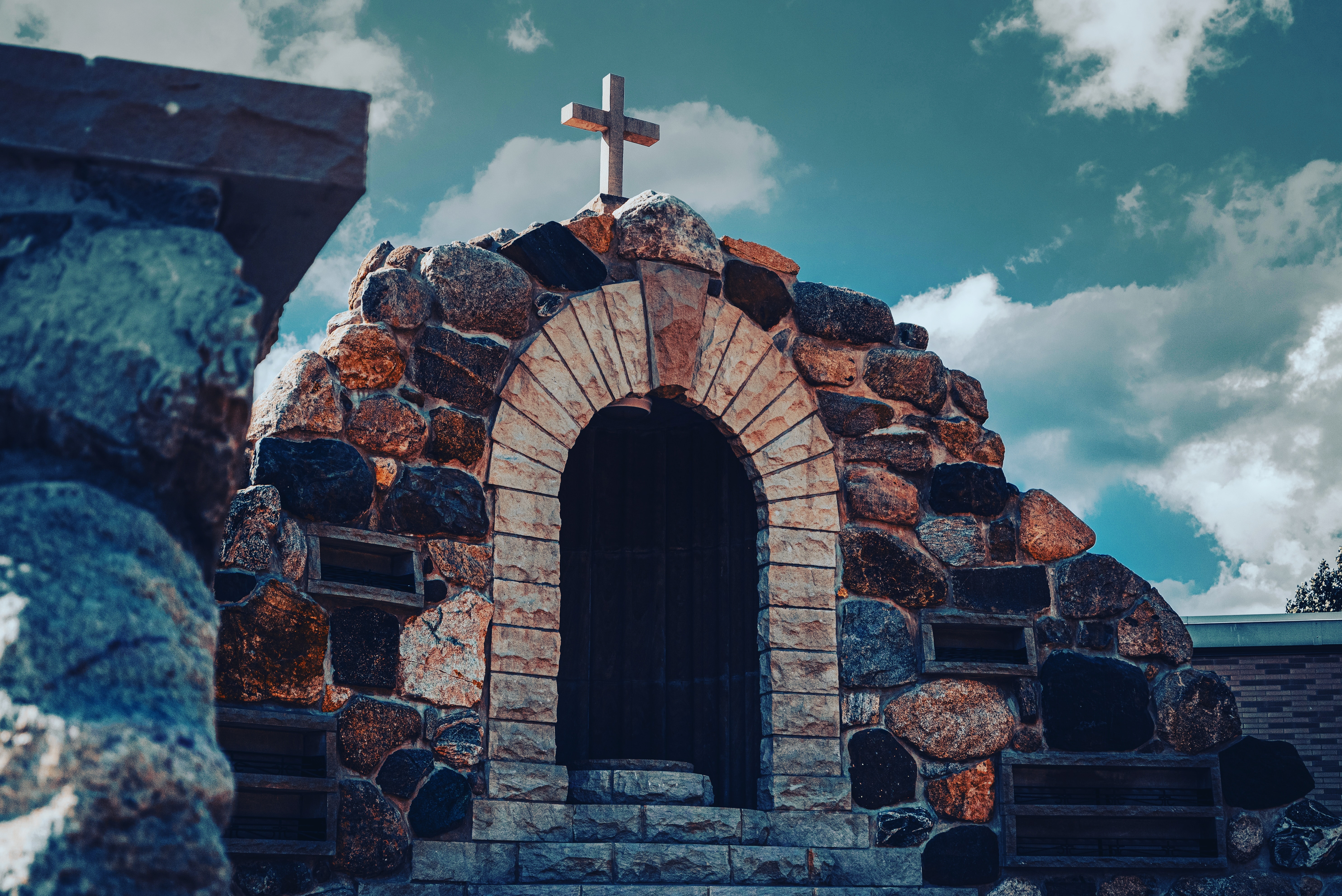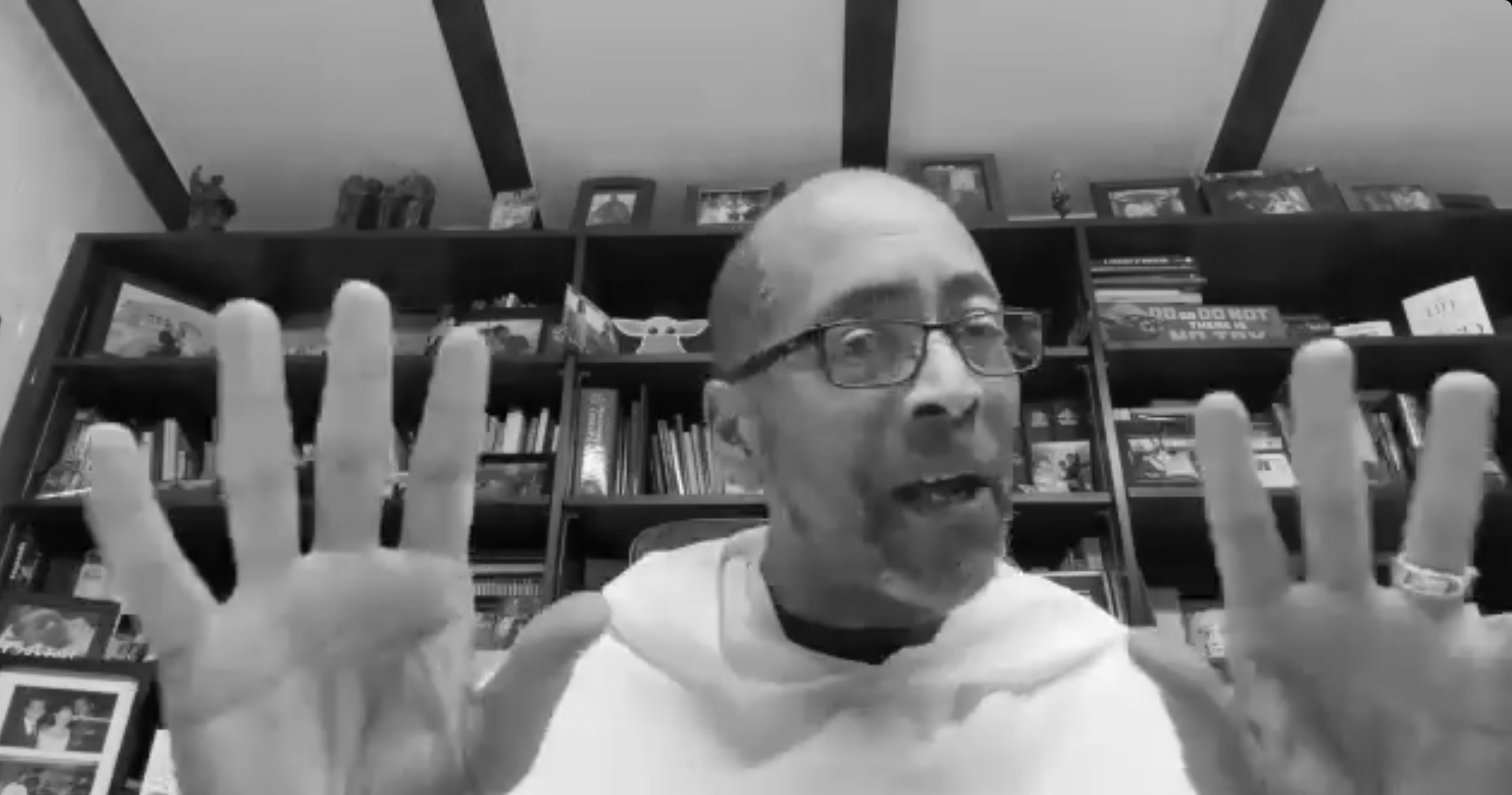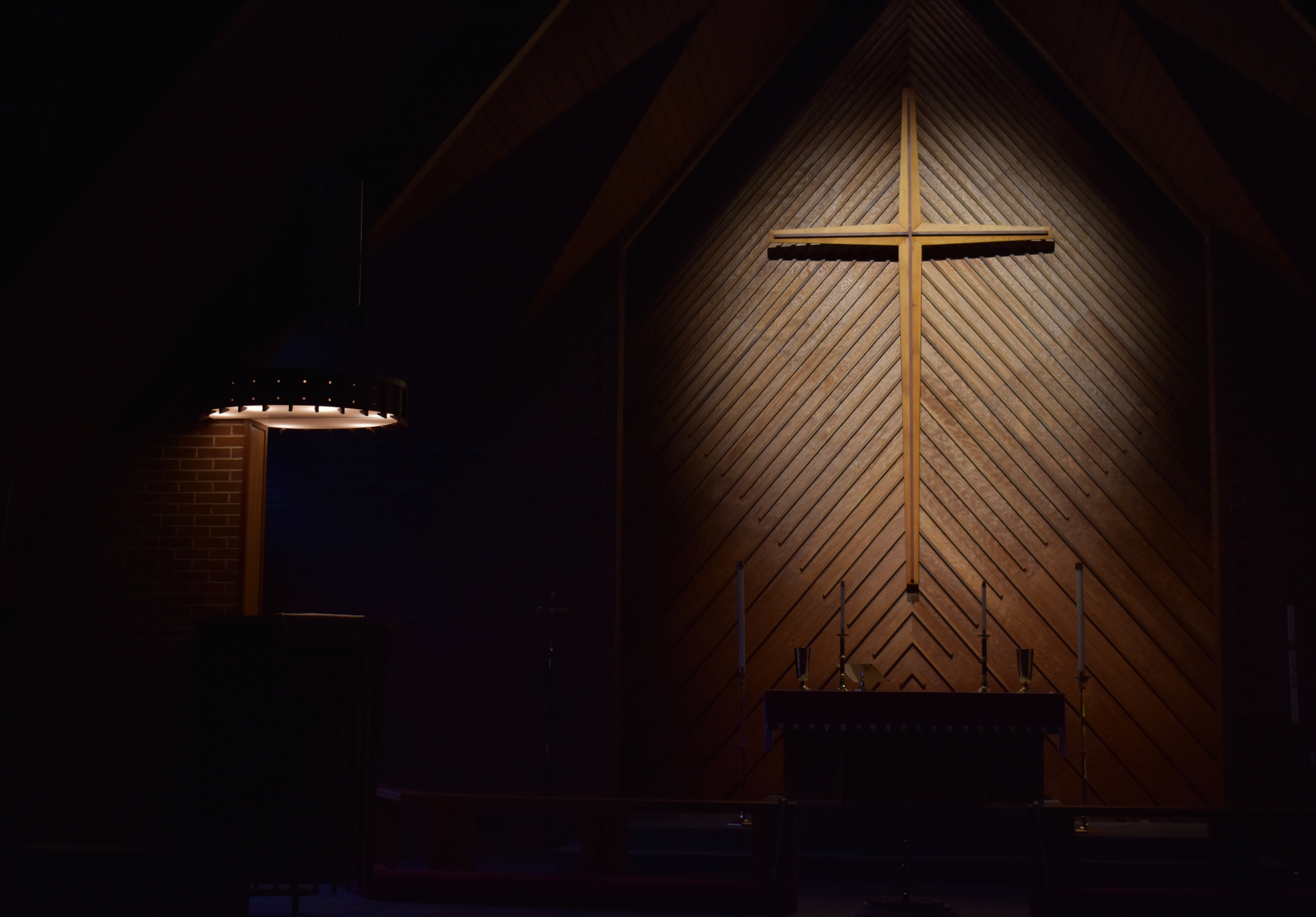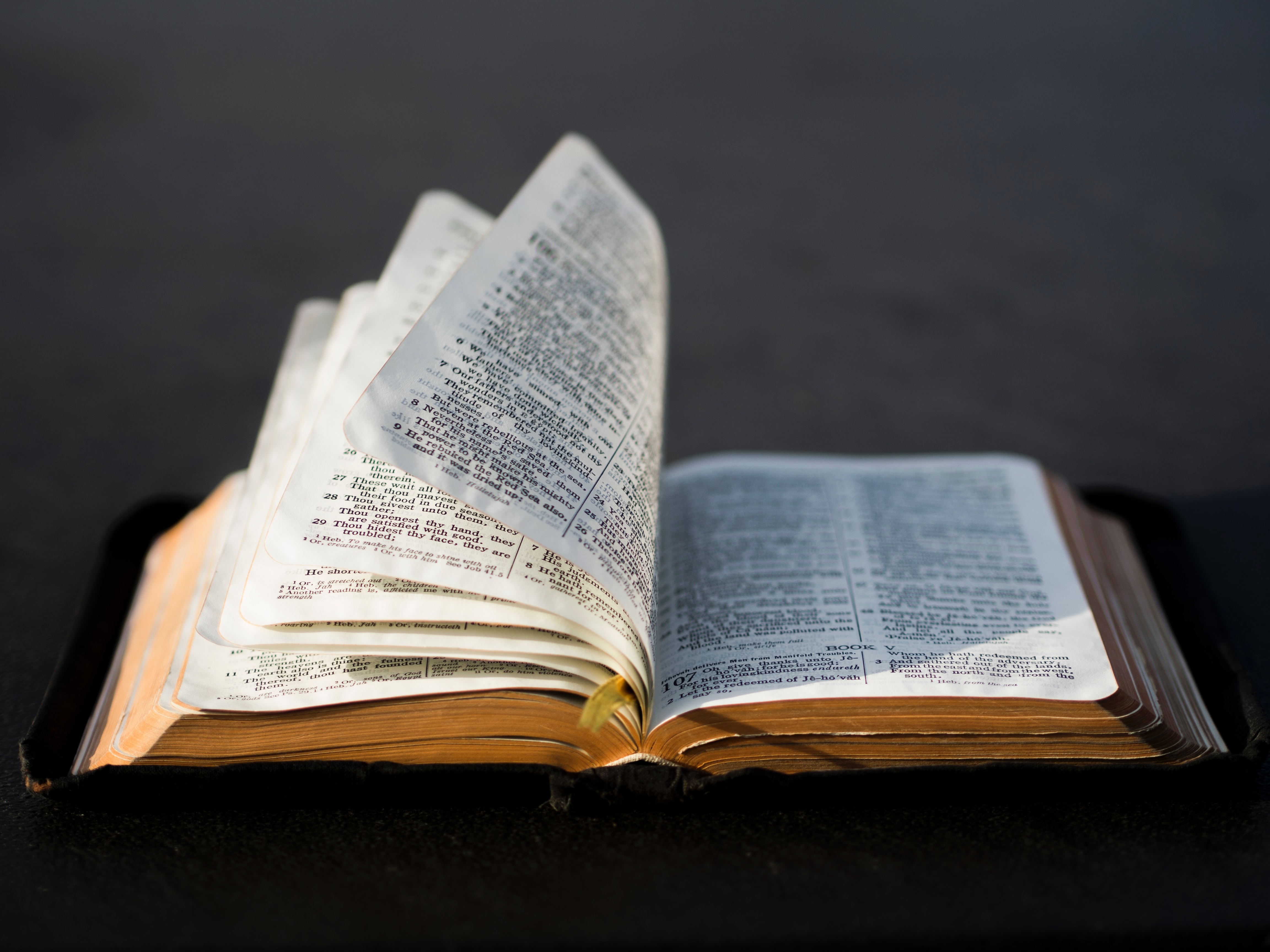"The Word doesn’t change but we change. I change. Community changes. So I always try to apply the eternal Word of God to the circumstance of the people in front of me. And that’s a challenge so I allow the Word to sit with me."
Fr. Stephen Thorne humbly speaks about the process of preparing a homily, his preaching approach, why community is important, and church.
The following is an edited transcript of the podcast interview with Fr. Stephen Thorne. Fr. Thorne is a priest of the Archdiocese of Philadelphia. Fr. Thorne was the Pastor of Saint Martin de Porres Catholic Church in North Philadelphia and currently is completing a doctorate in educational leadership at Bowie State University and chairs the Archbishop’s Commission on Racial Healing.
Fr. Thorne, as a priest who has given/spoken numerous homilies, reflecting on the scripture readings of the day, what is your primary focus on preparing your homilies?
First of all, for me, preaching is very important. It’s part of my life as a priest and communicating God’s word is critical. So I’ve always been drawn to homilies. I try to always get better at it. I’m not perfect at it. I try. I put a lot of work into it. It always begins in prayer so I begin my homilies by just asking God to enlighten me and to give me what I need to preach.
Secondly, another kind of the process is I read the scripture readings a week ahead of time. In the Catholic tradition, one of the great things is we have a lectionary. We have an order of reading so we know what the readings are looking like. There’s no guess. So we know what’s going to happen. So I read them and let them marinate, from I guess a culinary perspective, let them sit with me.
The Word doesn’t change but we change. I change. Community changes. So I always try to apply the eternal Word of God to the circumstance of the people in front of me. And that’s a challenge so I allow the Word to sit with me. I’m very attentive to, I like politics and current events, so I am one who does a lot. I watch the news, I read the newspaper, I try to stay current with what’s happening in people’s lives and then make the connection. So what is God saying to the people that are in front of me?
I’ve been blessed most of my priesthood to be in African-American communities where I, being African-American myself, I know a lot of the struggles that people go through and I try to weave that into the homilies. I don’t think a homily should be something that I get offline is read to people. So I don’t read a homily. I actually preach it and preaching it is an oral presentation where I may have an index card, I have some notes, but I’m actually preaching to the people. It’s in my head and I try to really bring that about to people and people often respond to that idiom, in that tradition, in such a way where they encourage you and give you direction themselves. So it’s a dynamic relationship between the people and the preacher.
And the goal is that people walk away with some homework. That they’re informed but they’re also inspired to do something. So the homily always draws you to the Eucharist but also draws you to go out. I always say from the altar to the street. So I should be able to think about what I heard today in the homily that leads me to be a better Christian and follow Jesus. And so I always give those points and give people some homework to do. Whether it’s preparing their hearts for Christmas, whether it is thinking about justice issues, whatever it may be, but I think that connection is very important.
One of the things I did in the middle of the pandemic, we still recorded homilies for our people to keep them spiritually alive during the terrible pandemic time in 2020, and the irony is that George Floyd was murdered the week before Pentecost. And George Floyd asked for breath. And that’s how God gave us the church, is through the Spirit. The Spirit is his breath, breathing, he breathes upon them. So it was to me a connection that was very obvious to preach about what happened in our country. People were very upset about and also the Spirit of the living God coming upon us. So all that being said, there’s a process and I try to listen to other people’s homilies, listen to the people, but more importantly, I ask God to help me to be faithful in my preaching that people might grow spiritually.
I would like to start pulling or teasing out a little bit of what you said. I’ve seen that in some of your homilies you begin by asking everyone to pray for you and pray with you. Can you speak a little bit about the importance of starting your homily with prayer?
Sure. Two things. One, it comes out of the African tradition that’s really asking for permission to speak. In the Black tradition oftentimes it’s the elder that gives permission to speak. So it’s part of my culture in terms of the importance of “may I speak.” Obviously I’m ordained. I know that the church and the bishop has commanded me and given me faculties to preach a homily but it’s also tied into the fact that I’m asking the people to be involved in what I’m doing. It’s very much a communal reality.
Secondly, it was inspired by Pope Francis, actually. One of the first things he did he said “pray for me” and I was just struck by that when I watched him in his first moments as our Holy Father. I’ve never heard a Pope say “I need prayer” and it kind of got me thinking that I need prayer too. And so it’s a very lived reality that I’m not God. I’m a man and I have good days and bad days. And sometimes that prayer really helps calm me down to get me in the right spirit to preach.
It also involves the people in the conversation. It’s also humbling because it really is God’s Word and I’m an instrument. I’m a vessel. So often I will ask God, “get rid of me and you step in’’ so it’s not just Stephen Thorne in a way, it’s God using me to say what God wants to say to the people. Because sometimes a homily is going to be a tough word and folks may not want to hear it. So I got to make sure I’m not just preaching to be popular. That’s not preaching. Preaching is being prophetic and sometimes prophecy means you might get in trouble. And sometimes you should ruffle some feathers when you are challenging people to think differently.
So that being said, it’s something I’ve done especially in the Black tradition. Many times Black preachers will ask, “I need prayer” and ask for prayer from the congregation before he preaches. And it’s just a nice weaving together of being Black and Catholic.
One of the qualities I appreciate about your preaching is your humility/humbleness because during your homilies you include yourself as part of the people that need to change, repent, seek Jesus. You don’t talk down to listeners but you speak up on issues while standing among the people, literally and figuratively. How aware are you of using this “we” in your dialogue? How much do you have to work for that or how much is that just natural for you? Being cognizant that you’re part of the community instead of like separating yourself from it?
I think it’s a very critical aspect of this leadership is that I think authentic leaders are people who realize they’re on the journey as well. And as a teacher, I’m an educator as well, I often say the best teachers are students. And as I pursue my doctoral education I’ve also saw myself as professor but also a student. And so it’s the same correlation with my spirituality is that I am a student, I’m a disciple, I’m a brother but I’m also the pastor or the preacher, so I take both those realities.
So the “we” is very intentional. When I was a pastor on the last Sunday of the year I always stood before the congregation and apologized. I just simply said ”I know throughout this year I have offended someone, whether consciously or unconsciously” and if I’ve done it consciously I’ve always tried to obviously openly say to someone “I’m sorry.” But a lot of times we do things and people never tell us that we’ve offended so I would a general absolution and ask people to pray for me and ask them to continue to have patience with me as a human being because I’m on the journey.
I think that’s a push against the clericalism that sometimes we take in that toxicity that priests are perfect. We’re not. And so the “we” comes from the reality that…because the homily is preached to me first. I often preach in the bathroom or brushing my teeth or I’m walking on the rectory preaching. Literally talking because again it’s not a written word, it’s an oral word and so I’m really preaching things that “what do I need to hear today? What do I need to grow? Where are my growth moments?” And sometimes that correlates to people’s lives who say “Father, wow, you were really talking to me.”
Well, really, I was talking to me, but because I’m attuned to the people’s needs and also it comes from being aware of where people are. Listening to people’s stories, knowing them, knowing their struggles, being very cognizant of the Word of God, the Bible and the daily news. Have both in your hands. And to know what is happening in people’s lives and if you are aware of that you know the struggles, you know the joy, you can bring that together.
So I think it makes it very human because as opposed to “I talk, you listen” because the homily really is in the Catholic tradition, although people may respond to it, it is my interpretation. But I think it’s important for me to be very humble to realize that I’m also being preached to or with as opposed to simply preached at.
What elements would you say contributes to how and why you deliver the type of homilies you deliver?
Storytelling. I love storytelling. I’m a talker, obviously, and so I think telling stories are very important. I have a theme oftentimes in my homilies so people kind of know where it’s going. Sometimes on purpose. It makes you think because it’s not so obvious. Like “where is this going today?” It may be a song, it may be something that is happening, a question. It’s meant to create interest. I may use a symbol, I may use actual prop. Again especially when I’m preaching to young people they love that because it gives a connection. I preached one time about a baseball being a ball that it actually has something in it. I talked about make that connection to the Christian life. We’re supposed to have something inside of us.
So I use those things. I use humor. I like jokes and funnies and things that connect to people’s lives or I often talk about myself or my family. And again people can relate to situations that are funny and they’re relatable and then it also engages. Many times in my parish, in the Black tradition, the homily is much more than a kind of a seven minute quick expression of the readings, kind of re-hashing of the scriptures. So if it’s going to go on for 30 minutes it’s got to be engaging. So I’ll move around, I’ll start perhaps at the pulpit. I’ll move to the the aisle or I’ll often will weave in music. The choir director and I were very much in sync and so I often would end my homily with a song which kind of brought it together.
So all that was part of different ways to engage people. And whether it’s storytelling, humor, movement, inflection of voice, all that is part of the form of the preaching. It’s a matter and a form. The word is important, you can take a message. But also there’s something that’s supposed to be engaging to people. The goal is “Father wasn’t just funny” or “Father moves around a lot” but “what did I learn from that?” And I want people to walk out of church saying there’s two or three things I have some homework to do as a Christian this week.
Can you talk about that relationship between the homily and the music? Does the lyrics of a song lead the homily or does the choir supplement your homily at the end with a song that they thought up as they were listening to you?
It’s often pre-prepared. It’s already intentional. The choir director at St. Martin de Porres, where I was pastor, Tonya Dorsey, was an outstanding person. She would listen very intently to what I was preaching but oftentimes she would share her suggestions. Normally in Catholic worship there isn’t a song after the homily. That’s more of a cultural adaptation, kind of an extension of that because music is such an important part of Black worship and Black spirituality.
But it did. It tied them well. And even if you didn’t get much out of the homily, that may have been the case, at least the song got you. So it was meant to connect as many different ways to get it. And Tonya would suggest “what do you think about this song, Father, in your homily?” And it would get me thinking. So sometimes it was, it led it, in terms of getting me to think about “wow, that makes perfect sense. The lyrics of that song are really great.” Or I may have something in my heart that I would let her know “could we do this song at the end?” And so I knew the genre of music there and it would fit perfectly together and it would lead out the theme.
So it depends on what was happening but it’s all about relationship. And that’s kind of a theme of our conversation: relationship. Whether it is me and the people. Me and the musicians. Obviously me and God. Even me and myself. Like just being very relational because preaching is relational. God is not virtual. God comes to us in flesh and that’s one of the beautiful things about our God. That God didn’t say you’re saved from a distance. God literally came in the flesh to us and so the homily needs to be an in-fleshed moment where people really can see and taste and touch. All those things that really invoke humanity.
I’ve cried at homilies sometimes because emotion and holistic spirituality it is something that really touched my heart. It moves me to tears. That’s being human because that’s part of our human reality. So relationships are very important and music, it could be an upbeat song or a reflective song or slower song, but it would help people understand “okay, that’s what Father is trying to accomplish today.”
How do you balance the time span of your homily? If it’s too short people might not get anything out of it. If it’s too long people might start tuning out. What time frame has worked for you and how do you know generally how long your homily will be?
Good question. Very good question. That’s something that varies. I think preaching as a pastor, as an African-American, in an African-American community, I’m not saying everybody who’s Black wants a long homily. That wouldn’t be true. However, I kind of knew enough about the community to know what would people want to be fed with. So if I’m in a different space I certainly can preach a homily which I think is engaging, that is relational, that is also five minutes. So I don’t think length is always a determinant of a good homily.
If I’m in a space, especially as a pastor, where part of my responsibility is to address specific issues that are part of the community, it may take me more time. So it depends on where I am. If I’m a guest celebrating Mass in some place and I’m just plugged in a community, obviously it’s going to be a very different kind of reflection for me at least because I don’t have the same relation to the people. But if I am in the First Sunday of Lent and I want to really set a tone for where our parish is going for the Lenten season I may preach for 30 minutes based upon the need that I recognize.
But also not having a script you have a lot of flexibility. If you realize that this is not going well, you can tell people are tuning out, then you can again shut it down a little bit earlier. So I think you kind of know where people are based upon community, the needs, relationship. If there’s no heat in church and it’s a cold cold winter day I ain’t going to preach that long because people are cold. I’m going to keep it short. If it’s a very hot day or there’s a child who really is having a tough time so people are distracted, all those things may help me to adjust the homily being a little bit shorter, a bit longer, depending on what’s going on.
How do you handle that situation of adjusting? You may have something prepared to preach on and then all of a sudden you have to scrap it because of something that has come up in the moment
I think honestly that’s where the keeping it real comes in. Being very honest. One time Easter Vigil we had a beautiful celebration, I was back in the rectory just getting ready to celebrate. I was actually having a piece of cake celebrating the breaking of the fast of Lent and a young man was murdered in front of our church. It was one of the most tragic moments I’ve had as a pastor. It was actually gunshots in our church door. So I spent the next few hours with the police, with the family. Everyone knew when they walked in the church that there were gunshots in the door. They heard about it.
It was Easter Sunday morning. So how do you marry the joy of resurrection and the tragedy of someone dying on the church steps. So not to preach about that moment would be totally disingenuous. So what happened? That was the homily. I talked about joy in the midst of sorrow. I talked about hope in the midst of despair. Actually we ended Mass by going outside where the spot of the murder was and prayed. That’s church. That’s reality. To me, something happened, there’s a fire or even something joyful that happens, to me that’s, no matter what I prepared, you have to pivot.
It’s kind of like being a good basketball player, a good football player. You may have a play as a quarterback but if the person is not open, the wide receiver, so you have to adjust to the need or you just throw it to the sideline. You have to always be very nimble and I think being spiritually nimble and realizing what God wants to say to the people and I’m just a vessel, that’s very very important. And I would say to anyone who’s a homilist that no matter what you prepared, if something’s happened, especially a tragedy, what are you talking about if you’re not connecting it to the lives of the people?
And although the Word is eternal it doesn’t change, what’s great about our church too is that we have four pieces of scripture. Two Old Testaments, two New Testaments. So we have a lot of latitude to preach about certain things. I may preach a certain phrase that’s from the readings. I may preach on all the readings. So it depends but I do think it’s very important to be realistic and incarnational and aware. I get there sometimes and say I’m having a bad day.
To get back to that experience I talked about. I kind of told the people what happened and I said let’s pray for that family. Let’s pray for that person who did that. And what is God trying to tell us in the midst of tragedy on resurrection day? There’s still hope and there’s still joy in the midst of tragedy and sorrow.
Before we wrap up I want to ask you some short questions I’m asking all my guests at the end of the interview. First, what is one scripture verse or part of the Bible that really resonates with you and why?
That’s a tough question. It’s a lot of scripture verses that come to mind. I guess one is in the Gospel of Luke. Jesus says “I’m in your midst as one who serves.” That kind of connects to what I’ve shared in this interview. I try to be in the midst of the people as a servant, not above the people, but in the midst among them. That’s how our Lord comes.
And secondly, it’s in the book of Romans with St. Paul’s, “if God is for us who can be against us.” That’s often used at funerals and it reminds me that God is for me. And no matter what happens God is for me. God has chosen me. And it gives me a sense of hope in the midst of all my struggles and challenges and sinfulness that God is with me. And so those two things stay in my head as far as my scriptures.
The second question is what is one word or a couple of words that you would like God to use in describing you?
My son. He is my son. God loves me. That God uses me. God’s not finished with me. I am a work in progress. I’m a piece of clay and that God is still trying to mold. But God loves me and I think for me part of my spiritual journey has been understanding God’s incredible love for me. That’s always what’s motivated me to get better is that love. People don’t ever change out of fear, it’s only love that sparks true conversion. So that God looks upon me and says “that’s my son and I love him.”
And finally is there anything we can help promote or you like others to support?
Good question. These kinds of moments are great. I love when people take initiative. And as a teacher I love people that own their learning. When people can take programs or podcasts or communication, that’s a great gift from God, to spread good news, spread kindness, spread love, spread justice, awareness, all those things I just love when people take initiative. It’s a personal excitement so I think I would say that people find something you’re passionate about and do it and do it well for God.





